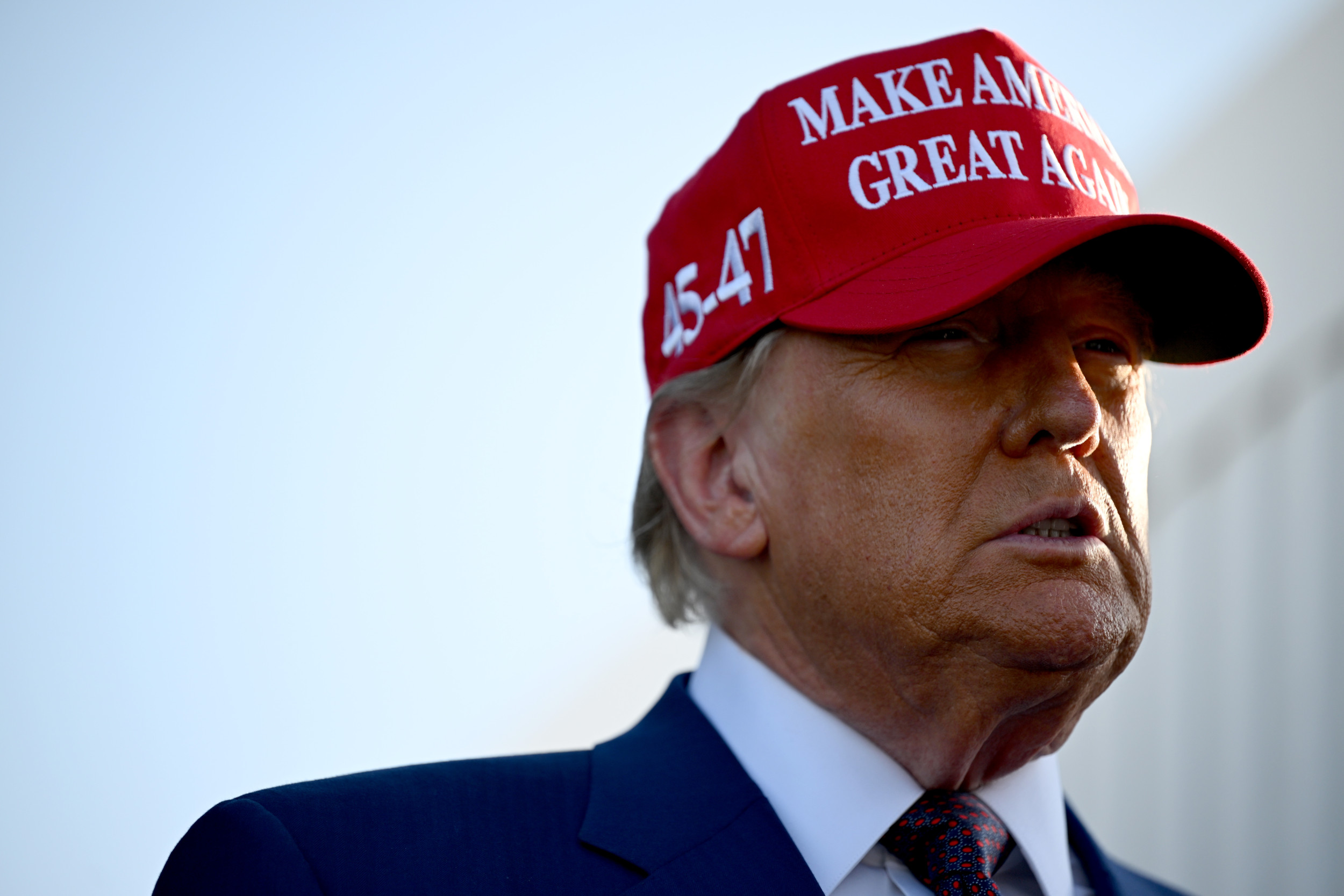Mexico president Claudia Sheinbaum has sent a fiery letter to President-elect Donald Trump in response to proposed 25 percent tariffs on goods from Canada and Mexico.
Calling for Trump to open a dialogue with her government, Mexico's first woman president touched on migration, the fentanyl epidemic, as well as tariffs in her November 26 letter.
The President-elect announced his tariff plans for the two countries in two posts on Truth Social on November 25, and wrote that the levies are aimed at stopping the flow of illegal drugs, namely fentanyl, into the U.S, as well as curbing illegal migration.
In a translation posted by David Adler, the co-general coordinator of the organization Progressive International, to X, formerly known as Twitter, Sheinbaum says: "President Trump, migration and drug consumption in the United States cannot be addressed through threats or tariffs. What is needed is cooperation and mutual understanding to tackle these significant challenges.
"For every tariff, there will be a response in kind, until we put at risk our shared enterprises. Yes, shared. For instance, among Mexico's main exporters to the United States are General Motors, Stellantis, and Ford Motor Company, which arrived in Mexico 80 years ago. Why impose a tariff that would jeopardize them? Such a measure would be unacceptable and would lead to inflation and job losses in both the United States and Mexico."

Newsweek reached out to the Trump transition team and the Mexican Ministry of Foreign Affairs for comment via email outside of business hours.
The Mexican president also says that "Seventy percent of the illegal weapons seized from criminals in Mexico come from your country" and said that Mexico does "not produce these weapons, nor do we consume synthetic drugs. Tragically, it is in our country that lives are lost to the violence resulting from meeting the drug demand in yours."
She also talks about Trump's statements regarding Mexican migration, and says that "encounters at the Mexico–United States border have decreased by 75 percent between December 2023 and November 2024. Moreover, half those who arrive do so through a legally scheduled appointment under the United States' CBP One program. For these reasons, migrant caravans no longer arrive at the border."
Sheinbaum concludes, saying: "I am convinced that North America's economic strength lies in maintaining our trade partnership. This allows us to remain competitive against other economic blocs. For this reason, I believe that dialogue is the best path to understanding, peace, and prosperity for our nations. I hope our teams can meet soon to continue building joint solutions."
At the time of writing Trump had not responded to Sheinbaum's letter, via his website or Truth Social and X accounts.
Trump's tariff plans for Mexico and Canada have caused widespread concern among politicians and the public, as they could possibly violate the United States-Mexico-Canada Agreement (USMCA), a trade deal signed during Trump's first term not long before he left office.
The USMCA, which entered into force on July 1, 2020, substituted the North America Free Trade Agreement (NAFTA). According to the Office of the United States Trade Representative, executive office of the president, it was "a mutually beneficial win for North American workers, farmers, ranchers, and businesses" which "creates more balanced, reciprocal trade supporting high-paying jobs for Americans and grow the North American economy."
Mexico represents approximately 25 percent of all North American vehicle production, according to Reuters, and if the tariffs are imposed, estimates found they could cost the U.S. $78 billion annually.
Further, the increased tariffs could result in price hikes in industries including automobiles and automotive parts, agricultural products, electronics, mineral fuels and oils, plastics and plastic products, machinery and industrial equipment, and aluminum and steel products.
American consumers will likely see price increases for products including avocados, tomatoes, beef, cheese, TVs, laptops, gasoline and diesel, and more.
Small business owners have also previously warned that the increase in tariffs would be "devastating" for Americans and that numerous layoffs could happen as a result.
Regarding his reasoning for imposing the tariffs, Trump wrote on Truth Social on November 25 that "thousands of people are pouring through Mexico and Canada, bringing Crime and Drugs at levels never seen before" and that a "Caravan coming from Mexico, composed of thousands of people, seems to be unstoppable in its quest to come through our currently Open Border."
He wrote that the tariff will remain in effect until Canada and Mexico stop bringing drugs, namely fentanyl, and illegal aliens into the US. Trump concluded: "We hereby demand that they use this power, and until such time that they do, it is time for them to pay a very big price!"
Trump then went on to write that he also had talks with China about the drugs coming into the U.S., but they "never followed through" on instituting the death penalty for drug dealers caught doing this. He wrote that he would impose a 10 percent tariff on Chinese goods coming into the US.



















 English (US) ·
English (US) ·